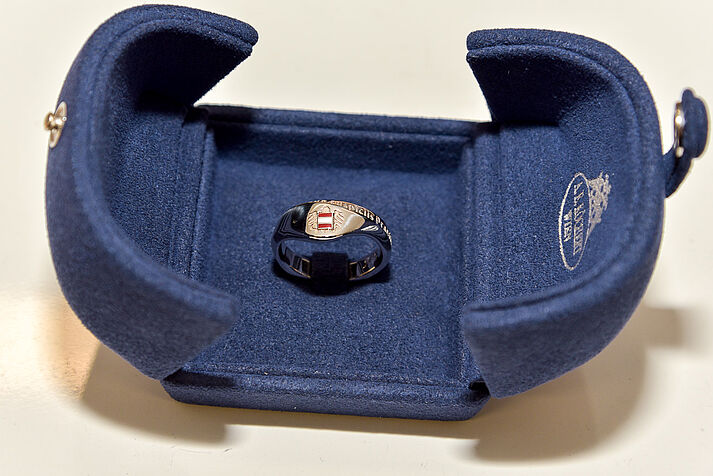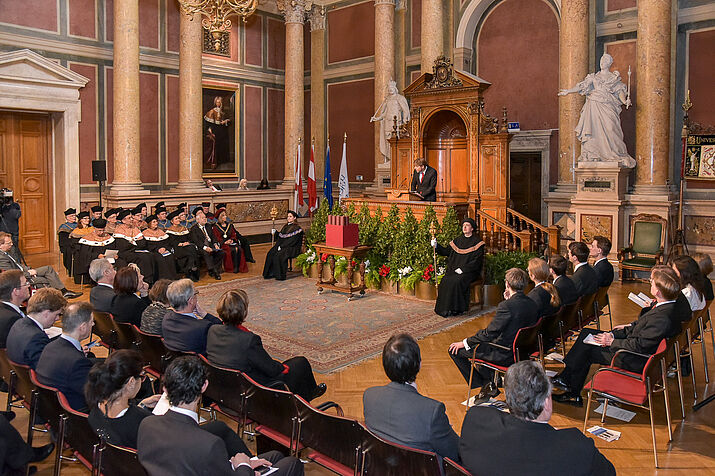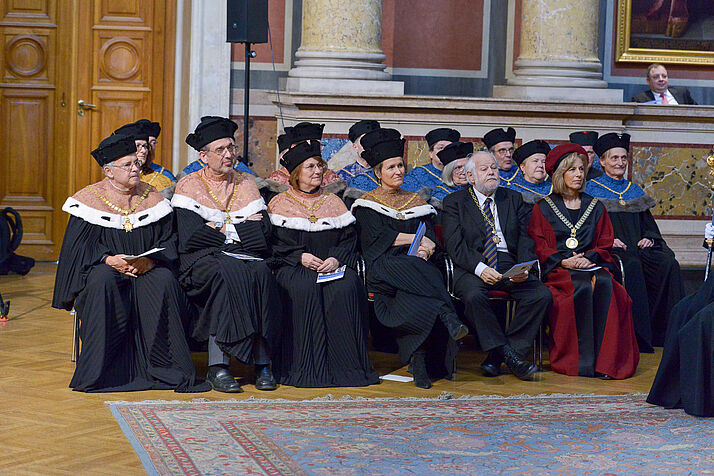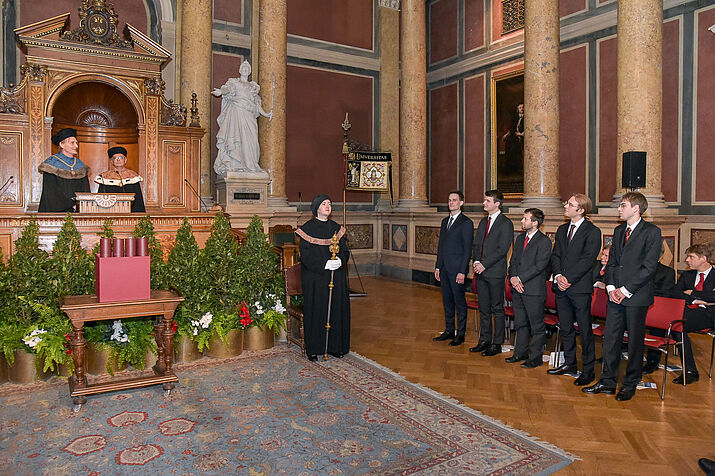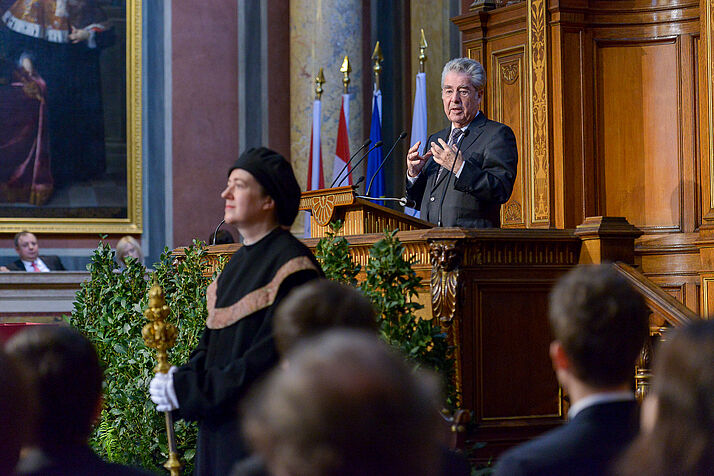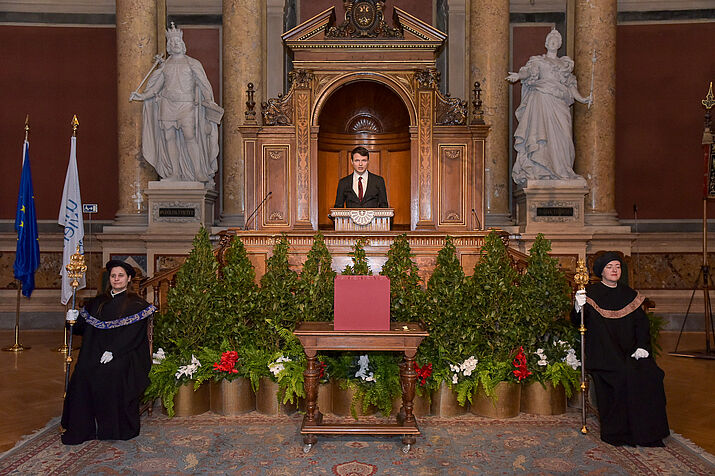Promotio sub auspiciis praesidentis rei publicae
The University of Vienna celebrates the anniversary of its foundation on 12 March 1365 with an annual Dies Academicus. After a wreath-laying ceremony at the tomb of its founder, Duke Rudolph IV, the "Promotio sub auspiciis praesidentis rei publicae" is celebrated at the Main Building, the Alma Mater Rudolphina Vindobonensis.
The graduation ceremony under the auspices of the President of the Republic is an honour bestowed on candidates who have excelled in their studies. To be eligible, candidates must have completed a doctoral programme and have earned "excellent" grades not only throughout their university studies, but also through the last four years of secondary school (Gymnasium). Moreover, they have to meet the requirement of "commendable" behaviour "both in and outside the institution of higher education".
Promotio sub auspiciis imperatoris
The "promotio sub auspiciis imperatoris" was a graduation ceremony under the auspices of the Austrian Emperor, where each candidate received a personal gift from the monarch (necklace, medallion, ring). Originally, holders of a bachelor’s degree usually received a gold necklace, to which a medallion was added for masters.
A gift of a diamond ring with the initials of the emperor was first recorded in 1779 and became common in the 19th century. The ceremonies took place in the theatre hall of the Akademisches Kolleg (academic college) (in Bäckerstrasse). At the ceremony, the professor conferring the degree stood on the podium and the two candidates in front of it. The monarch was seated in the centre of the audience space, with the Chancellor and the Rector of the University to the left, behind a bedel carrying the Rector's sceptre.
The first "sub auspiciis" graduation ceremonies took place at the Faculty of Arts, which was run by the Jesuit order from 1623 onwards. Besides the solemn graduation ceremonies of the Jesuits, the crowning of poets, a tradition going back to Emperor Frederick II, was probably the second historical root of the "sub auspiciis imperatoris" graduation ceremonies, which were a specifically Austrian phenomenon.
Franz Gall, Alma Mater Rudolphina, 1365–1965, (Vienna 1965), p. 106-108

